
The people of Maka, in the Republic of Cameroon, Central Africa have always faced challenges accessing water.
For many years villagers have drawn water from a hand dug well – but it dries seasonally. There’s a deeper bore-hole which is in need of repair. In the rainy season there’s a stream running close by – but these days it’s quite badly polluted. And finally, in the dry season, a distant river is their last resort …but the journey to and from it exposes women and girls to the danger of violent attack.
The problem they cannot get away from is contamination; there is pollution to some extent in all their water sources which has been causing sickness and is responsible for the higher-than-expected levels of infant mortality in their community.
Happily all that has now changed after the installation of a solar-powered water-maker which condenses the moisture in Camaroon’s often hot and humid air, and makes it available for drinking.
The multi-agency project to provide clean water was led by humanitarian organisation Aquavera – whose mission is to provide access to clean water, using de-humidification, for those most in need. A local NGO facilitator, Fondation Jean-Félicien Gacha oversaw the delivery of the project’s community facilities; and the solar energy system was built by African Solar Generation. The scheme was officially opened on the last day of 2024.
The newly-established ‘Water House’ and community hub is a 300m² space which accommodates solar panels, charge controllers, and inverters to provide three-phase electricity which runs a Trident 200 Air-to-Water maker. The Trident 200 is capable of producing 1,000 litres of potable water per day. Water from the well is now cleansed by filtration; and the community also benefit from a rainwater collection and filtration system.
The community hub is located within the safety of the village and also provides powered workplace facilities where women and girls – who make up 65% of the population – can learn entrepreneurial crafts. There are in fact three main aims of this ambitious project: to eliminate the danger to girls and women; to improve community health; and to empower women by endowing them with financial independence earned from making and selling their hand-crafted goods.
Easy access to safe drinking water has changed lives in Maka. The actual cost of providing clean water is a paltry $1US per 20 litres.
The opening ceremony was held at the end of last year, where donors, community leaders, and over 500 members of the Maka community gathered to celebrate their new era of clean, safe, and sustainable water access for all; and to say ‘Thank You’ to the donors and partners who made it possible.
Measuring the impact
Community organiser Elodie Tchouakui, together with a steering committee of female community leaders, school teachers, doctors and nurses, will manage the ‘air-to-water’ machine and will collect data on infant deaths, school attendance, violence against women and economic improvements to monitor changes after the installation of the ‘air-to-water’ machines.

The Jean-Félicien Gacha Foundation, an NGO based in Western Cameroon, was created in 2002 with a vision to encourage local enterprise, develop talent, and spread knowledge in Cameroon. The Foundation is well known among the Maka community having already built a school for the village.
Olivier Njamfa, president and co-founder of the Aquevera Foundation says: My joy is immense. It’s wonderful to be here in Maka, for the inauguration of the site that gives drinking water. There is an energy, a desire, an ability to continue bringing water to places without water or electricity.
Laurent Schmitt, from the funding L’Oréal Group says:
The L’Oréal Group, historically committed to women, created in 2020 the L’Oréal Women’s Fund, an endowment fund to support organisations and associations in the field in their efforts to support women in highly vulnerable situations around the world. Gradually, the women of the village will no longer have to go down to the river every day to bring back the necessary water to their families, and they will thus have more time for other activities, such as traditional beading or sewing for which they are trained.
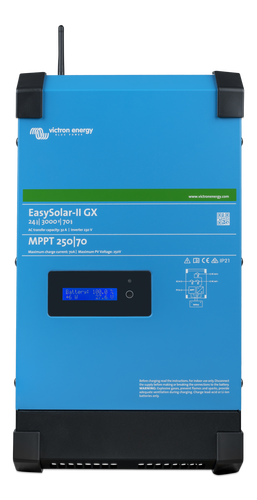
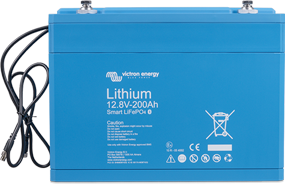
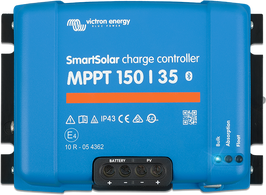

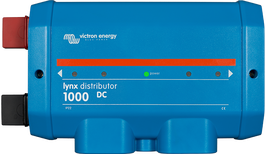
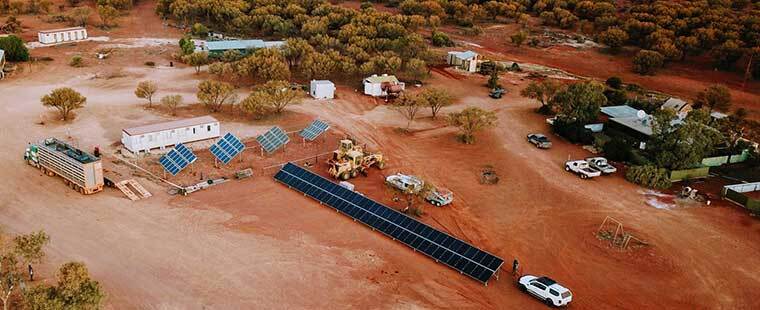






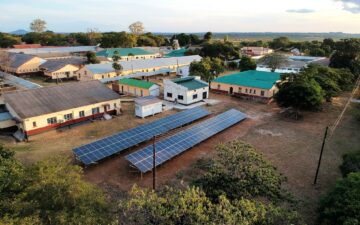









 #victronenergy #adventure
#victronenergy #adventure
 ELECTRICS
ELECTRICS 
